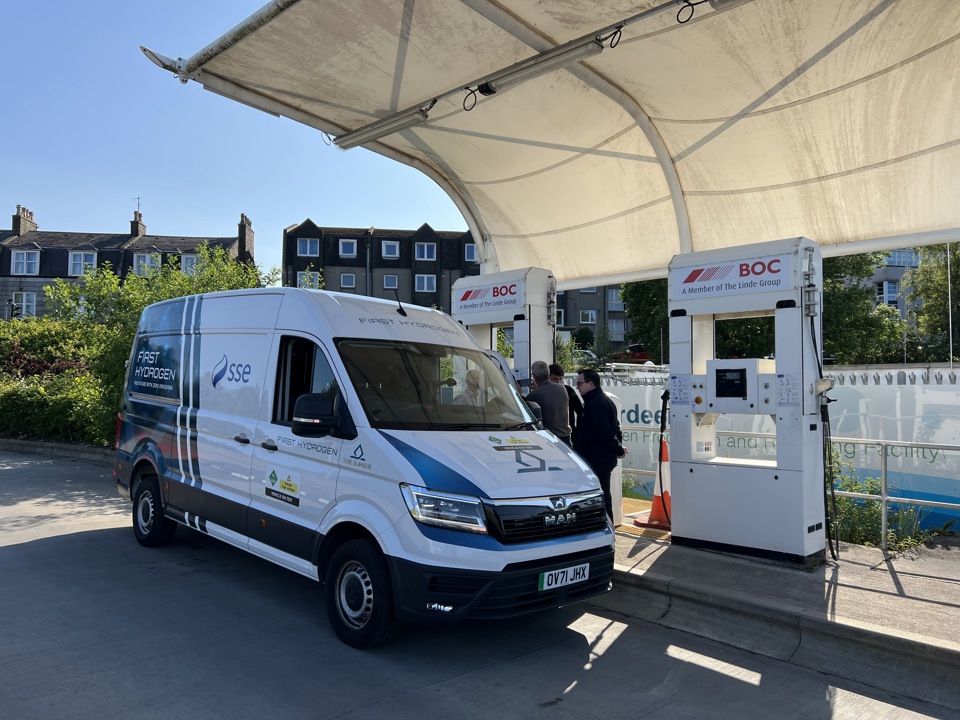Fleets highlighted how going electric may not be the best option for all vehicles, with a blended fleet featuring alternative fuels such as hydrogen and biofuel instead needed.
Logistics, hauliers and construction fleets are facing a big challenge to transition their fleets to zero emissions by 2040.
In a seminar looking at the road ahead for zero emissions logistics at Fleet and Mobility Live, delegates heard from commercial fleets that are forging ahead with their alternative fuel vehicle (AFV) strategies for large vans and HGVs.
“Cars are quite simple to transition to electric,” said Sarah Gray, head of EV and AFV at Rivus. “But when you get to vans, they're a little bit more difficult, because you obviously need to carry equipment, they need to do certain amount of miles.”
Fleet management business Rivus was the first company to carry out real-world testing of a prototype 3.5-tonne hydrogen fuel cell (HFC) van from First Hydrogen and gave Fleet News exclusive access to its findings with an interview in June.
Its studies have revealed several advantages compared to battery electric vans (BEVs), including improved payload, longer range, better efficiency and quicker refuelling.
SSE has also completed a four-week trial with the First Hydrogen fuel cell van.
Gray said: “It was really exciting to get our hands on the first hydrogen vehicle to see how it performs. We had it for about four weeks and covered about 700 miles in the vehicle.
“All in all, it was really good… the trial was brilliant.”
Register now for 2024’s Fleet & Mobility Live
Appearing alongside Gray, Allan Rushforth, chief commercial officer at First Hydrogen Automotive, explained it now has a programme of demonstrations running with fleets.
“We began with Rivus and then we moved to SSE out of Aberdeen,” he said.
“With Rivus, in particularly, we were able to compare the operation and evaluate our hydrogen fuel cell vehicle against similar battery electric and diesel vehicles to get some real-life TCO (total cost of ownership) data for the first time I think globally for a light commercial vehicle in true-to-life duty cycles.”
Rushford added: “The data that Sarah's team and ourselves put together showed that we were achieving about 27p a mile from our vehicle during the trial with Rivus, compared with 22p a mile for an equivalent diesel vehicle and 18p a mile for an electric vehicle.”
In terms of fuel costs, Rivus was paying around £10 per killogramme of hydrogen for the trial, while for it to be on a par with diesel, it would need to cost around £7.70/kg. To be on a par with EVs, it needs to be £6.30/kg.
Rushforth says that hydrogen is expected to hit around £7/kg by 2025.
To watch the whole debate and learn more about the possibilities of alternative fuels for heavy fleet operators, see below.





















Login to comment
Comments
No comments have been made yet.